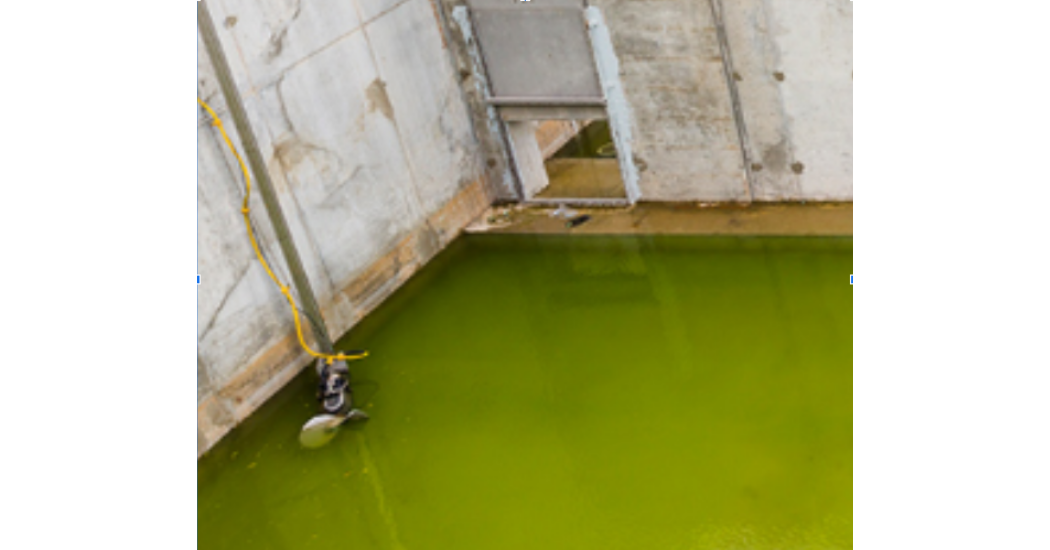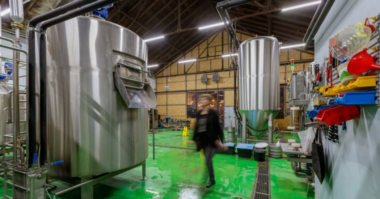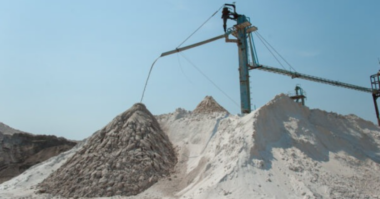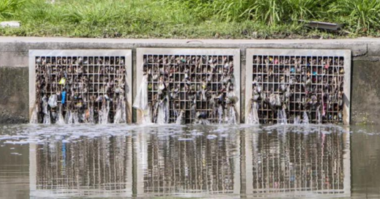How often does your submersible pump wear out and need to be replaced? Are chronic pump failures taking up too much of your maintenance team’s time? Corrosive materials in the water you are pumping can cause these issues and more. Corrosive fluids are common in many wastewater applications, such as chemical or pharmaceutical plant sumps, food and beverage processing facility sumps, metal plating operations, marine facilities, paper processing sumps, etc. If you’re experiencing increased downtime, high maintenance/repair costs, and the need for frequent replacements, a Stainless Steel submersible pump may be the cure for these common headaches.
Many substances dissolved in common wastewater fluids can be highly corrosive when pumps are exposed to them for extended periods. The higher the concentration of these substances in a liquid, the worse the corrosion will be. Some common examples include salt, sodium hydroxide (which is better known as lye or caustic soda), phosphoric and nitric acids, sodium hypochlorite (bleach), chlorine, peracetic acid, and hundreds of others.
Stainless Steel Submersible Pumps for the Cure
Cast iron submersible pump components corrode quickly when exposed to these chemicals, particularly when they are in high concentrations or at elevated temperatures. However, stainless steel submersible pumps withstand corrosion far longer because of their higher chemical resistance. Stainless steel submersible pumps offer longer service lives to reduce maintenance, repair, and replacement costs substantially. And, you experience less downtime!
Companies in a wide range of industries have turned to stainless steel pumps to solve their corrosion-related pump problems. For example, because of the acidity of the waste media involved, a California winery relies on BJM’s SKX Series pumps in their “green” wastewater treatment and release system. These pumps have non-clog impellers designed for high volume and lift performance. All wear and “wet” parts such as impeller, wear plate, oil housing, pump housing and inner pump top are made of cast 316 stainless steel.
Similarly, a leather tannery once used self-priming trash pumps to transfer the manufacturing run-off from a concrete sump to its treatment plant. However, the highly alkaline or highly acidic chemicals in the liquid caused the pumps to shut down several times a day. The tannery replaced its self-priming pumps with BJM’s SKX37 pumps, which have now been operating reliably for more than five years.
Tips for Submersible Pump Selection
When weighing the options for pump purchases, consult the chemical resistance references available on the web, such as Graco’s Chemical Compatibility Guide or Cole-Parmer’s Chemical Compatibility Database. Materials like steel, aluminum, thermoplastics, etc. are rated from A (excellent) through D (severe effect, not recommended for any use) for their compatibility with various chemicals in various concentrations and at various temperatures. These references can help you determine whether the chemicals in your application are compatible with cast-iron pumps or if stainless steel is necessary.
Also, consider the grade of stainless steel used in a pump’s design. This can have a significant impact on the pump’s longevity. Pumps constructed with wetted parts made of 316 stainless steel typically offer far better corrosion resistance than those made with 304 stainless steel. For example, 316 stainless steel gets an “A” rating for its resistance to ammonium fluoride (a chemical sometimes used in breweries for sterilization), but 304 stainless steel gets only a “D.”
Do your applications require pumping corrosive liquids? Industrial Flow Solutions specializes in the design, manufacturing, sales and service of pumping and fluid management solutions for harsh, rugged environments. With OverWatch™ direct in-line pump systems, BJM Pumps® products and Stancor® Pumps and Controls, we offer a comprehensive portfolio of submersible and direct in-line pumps and controls ideal for industrial, commercial and municipal applications.
IFS offers problem-solving solutions for Industries including Mining & Materials, Food Processing, Construction, Commercial Building Trades, Municipal Wastewater, and Power Generation/utilities. Our years of application and design engineering experience provide you the assurance that you are getting the best-fit pump for your application.
Contact one of the Industrial Flow Solutions Application Engineers today to learn more flowsolutions.com





Comments